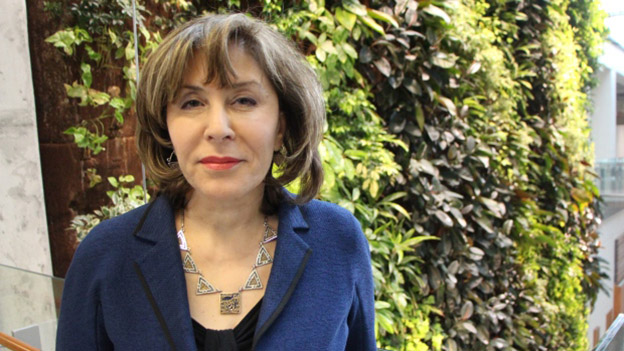Women who paved the way: McMaster’s first female engineers

In 1976, Hoda ElMaraghy (M.Eng ‘72, Ph.D. ’76 Mechanical) became the first Canadian women to earn a doctorate in mechanical engineering. She went on to become the country’s first female Dean of Engineering, and was recently appointed to the Order of Ontario for her pioneering accomplishments and her research on flexible manufacturing.
The groundbreaking women who came to McMaster to study engineering in the 1970s entered a field entirely dominated by men.
While many had the support of teachers and parents as they faced down society’s stereotypes about what they could – or should – do with their careers, there were plenty of barriers to overcome.
As Dale Elley-Bristow (B.Eng ’76 Chemical) noted, “My guidance councillor at my high school identified only five jobs for women during my era: teacher, nurse, secretary, housewife, and flight attendant.”
Their success in earning the respect of their peers can be seen in the leading roles the women quickly began to play in campus life. In 1976, Susan Sproule (B.Eng ’77 Civil, MBA ’97, PhD ’03 Management Science/Information Systems) served as the first female president of the McMaster Engineering Society. In 1978, Desryn London-Duncan (B.Eng ’78 Electrical) was elected the Electrical Engineering Society’s first female president.
Within the work world, Mac’s first female engineers also made their marks as groundbreakers, with many receiving recognition within their industry.
In 1976, Hoda ElMaraghy (M.Eng ‘72, Ph.D. ’76 Mechanical) became the first Canadian women to earn a doctorate in mechanical engineering. She went on to become the country’s first female Dean of Engineering, and was recently appointed to the Order of Ontario for her pioneering accomplishments and her research on flexible manufacturing.
They were groundbreakers, and they’ve sown fertile soil.
Women are no longer an engineering novelty. This year, 21 per cent of students entering Mac’s engineering program are female. Women are key contributors in the myriad of fields that demand engineering skills. Some thanks for that must go out to the women who blazed the trails.
Why did you choose to become an engineer?
“Math and science teachers in elementary and high school influenced me, while the successes and rapid advancement and innovations in 50’s & 60’s I saw occurring in the fields of electronics, tele-communications, computers and space explorations inspired me to pursue a career in engineering.” Jadranka (Jad) Rizoniko-Popovic
“Growing up, I was always curious about how things worked. I would try to dismantle my bike to see how and why it worked. As I grew older, I realized that I was very good at maths. Also, around that time, there was an effort in my country of birth, Guyana, to encourage students to study engineering. At that time, I was attending an all girls’ high school. A female engineer (one of the few in the country) came to my high school and spoke to us about the interesting tasks related to engineering. She was articulate and exciting. I could distinctly remember her saying, ‘If you are good at maths, you can become an engineer. You will not regret it.’ I decided at that time that engineering would be one of my career choices.” Desryn London-Duncan
“I chose engineering because I enjoyed math and sciences but was interested in their practical application. I grew up working on projects with my Dad, who always encouraged me to aim for university which is what he would have loved to do. I was also fortunate to have been encouraged by teachers, particularly my grade 13 math teacher to apply to engineering. I had actually never met a professional engineer before I enrolled.” M. Dorell (McCarron) Carlson
Read more in the latest issue of the MacEngineer.


